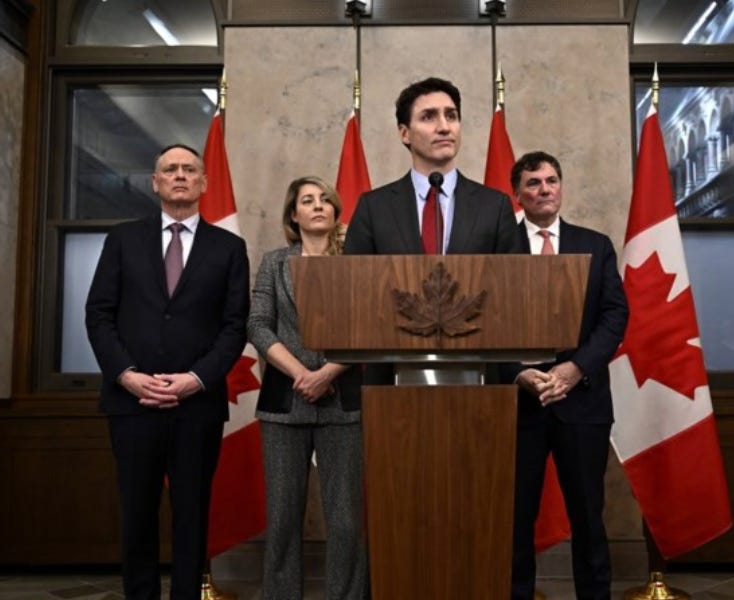Exclusive: How the RCMP, CBSA, and Trudeau Government Lost U.S. Trust in the Fentanyl Fight
Surveillance operations have raised alarms after placing Prime Minister Justin Trudeau and a former cabinet minister in proximity to Asian organized crime suspects.
Veteran law enforcement officials—both active and retired—from the United States and Canada have come forward with explosive allegations suggesting that Canada’s federal government may have systematically obstructed investigations into the highest levels of Asian organized crime. According to these sources, American agencies, including the U.S. Department of Homeland Security, have grown so alarmed by suspected corruption and legal loopholes in Canada that they have effectively sidelined Canadian law enforcement from sensitive investigations and intelligence-sharing.
Several veterans of Canadian law enforcement argue that while U.S. President Donald Trump’s critiques of Canada’s handling of fentanyl trafficking and border security are politically charged and often harsh, they underscore an uncomfortable reality: Canada is increasingly perceived as compromised—either incapable or unwilling to confront entrenched transnational criminal networks. American and Canadian sources alike describe a nation whose law enforcement agencies are in disarray, inhibited by suspected infiltration at the highest levels, obstructing investigations into billion-dollar drug networks and money laundering operations.
These American and Canadian experts pointed to the notorious case of Cameron Ortis, Canada’s former top police intelligence official, who was convicted of leaking Five Eyes signals intelligence to some of the world’s most dangerous Iranian state-sponsored criminals. His case, still cloaked in national security secrecy, is believed to have also involved Chinese espionage investigations. But concerns about corruption within Canada’s law enforcement and intelligence agencies extend far beyond Ortis himself, according to enforcement experts who spoke on the condition of anonymity due to the sensitivity of the matter.
Several said that U.S. officials suspect corruption within the ranks of Canadian border authorities, yet those suspects allegedly retained their security clearances.
“It was mind-boggling. The Americans would say, we have good reason to suspect that this particular CBSA officer is corrupt,” a Canadian policing expert said. “This information would be provided to higher-ups in CBSA with the understanding that this particular CBSA officer is not to show up at any future joint meetings. So eventually there would be a meeting, and the CBSA officer in question would show up at the meeting. The lead American investigator would end the meeting before it started. The Americans would shake their heads in disgust and disbelief.”
The expert said this growing distrust is a key reason why the United States has scaled back its collaboration with Canadian law enforcement over the past decade….[more]






